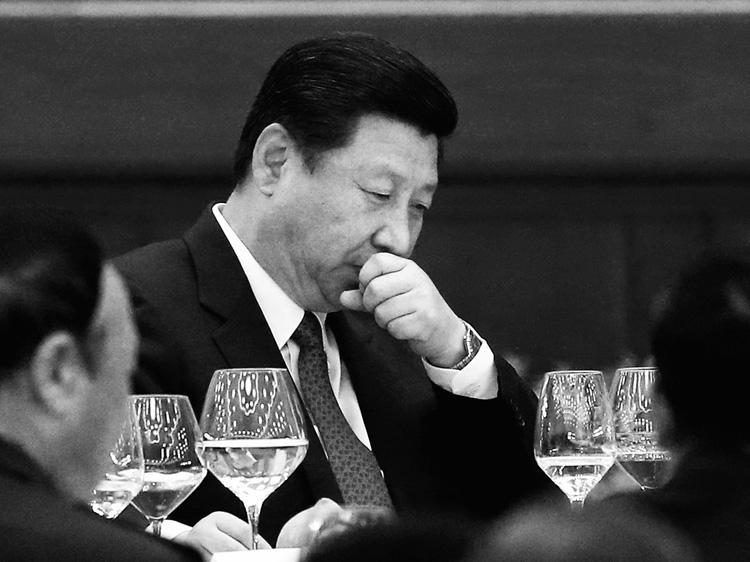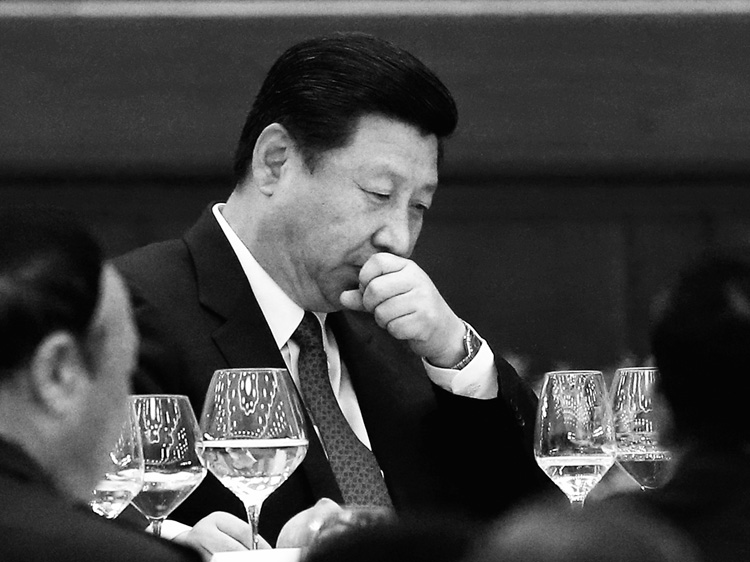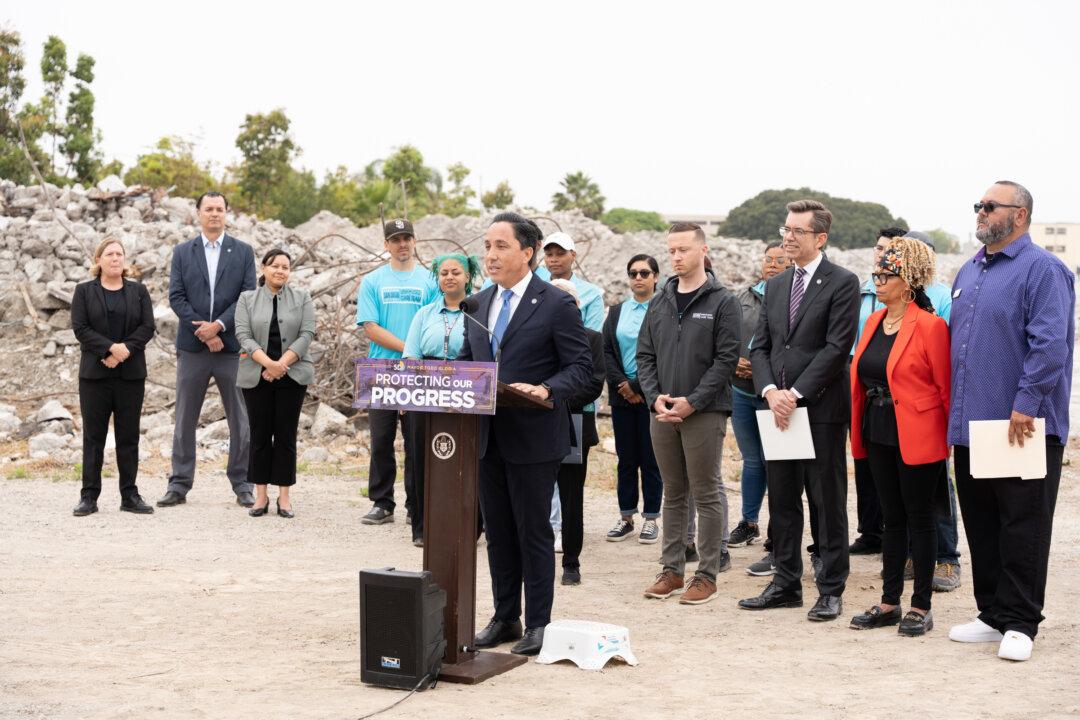There are tentative signals coming from China that with the ascendancy of the Chinese Communist Party’s new Party leader Xi Jinping, a new anti-corruption purge is underway, beginning in Chongqing, the former stronghold of disgraced Politburo member Bo Xilai.
Eliminating, or at least curtailing corruption, has been emphasized repeatedly by Chinese leaders, including during the Party’s recent 18th Party Congress. Xi Jinping himself said during his first address to the world that “There are many pressing problems within the Party that need to be resolved urgently, especially the graft and corruption cases that occurred to some of the Party members and cadres.”
His first moves against corruption may be taking place in Chongqing, according to a series of new developments in the southwestern megalopolis.
A recent announcement says that, for example, Meng Jianzhu, the new head of Political and Legislative Affairs Committee (PLAC), will dispatch large number of well-trained officials to Chongqing to start cleaning up corrupt officials. The PLAC controls all law enforcement operations in China, including the massive police force and a number of secret police agencies.
Lawless Southwest
A number of other cases related to Chongqing also indicate that a shift of winds may be afoot.
Li Zhuang, a former lawyer who was jailed in 2009 as part of Bo Xilai’s “smash the black” campaign, was recently summoned by China’s top prosecutor to begin re-examining his case.
When the case against Li took place in 2009, it was seen as a public blow to the rule of law in China because of its blatant flaunting of due process. The trial of Li took place in the context of Bo’s alleged anti-mafia campaign, but which was later revealed to be largely a large shakedown of political enemies.
Chinese media have published remarks from Li’s former client, Gong Gangmo, that he falsely testified against Li because he was tortured and forced to recite in the court “a written document prepared by a special investigation team.” That team was ultimately overseen by Bo Xilai.
Gong Gangmo’s brother Gong Ganghua was also summoned by prosecutor’s office recently. He told NTD Television that he was threatened that, if he did not cooperate in framing Li Zhuang, his brother would be shot, and two dozen of his family members, neighbors, and friends would be packed off to jail.
Gong Ganghua also said that in order to win the cooperation of his brother, Gong Gangmo, the special investigation team hung the latter and beat him so violently that he lost control of his bladder and bowels.
Though those details did not make it into the official reports, Xinhua’s coverage of Li Zhuang’s case–which had originally been strictly verboten–indicates that the faction favoring heavy punishment of Bo has taken the upper hand, political commentator Zhang Sutian commented to Sound of Hope Radio.
As part of the campaign two other officials who had some connection with Bo in Chongqing have also been fired: former deputy chief of the Chongqing Public Security Bureau, Tang Jianhua, who actively took part in the anti-mafia campaign; and Lei Zhengfu, the Party head of a district in Chongqing, who appeared in a secretly recorded sex tape that appeared online recently.
Chinese constitutional law scholar Tong Zhiwei of East China University of Political Science and Law published online his own investigative report into Bo’s anti-mafia campaign. In it he says the campaign was entirely lawless, and that on the say-so of Bo Xilai or his deputy Wang Lijun, thousands of private businessmen were labeled as belonging to the “mafia.”
Their assets were then seized, while some of the men were then executed. In Tong Zhiwei’s reading, Li Zhuang’s problems were merely a sampling.
‘Purity’ of the Party
Xi Jinping has on a number of occasions linked the survival of the Party with defeating corruption, also saying that corruption is connected with the “purity” of the Chinese Communist Party, which just celebrated its 63rd anniversary since seizing power.
Xinhua reported that Xi told the new 25-member Politburo on Nov. 19 that the Party must be vigilant against corruption, and if the problem increases “it will lead to the ruin of the Party and the country.”
The new leadership might be considering using Chongqing as a starting point to experiment with new anti-corruption approaches and reform measures, according to a commentary by The Sun in Hong Kong.
Zhu Reifeng, moderator of the website People’s Supervision Network, which first posted the lewd video of Lei Zhengfu, leading directly to the latter’s dismissal, told Voice of America that his articles exposing corrupt officials were previously blocked by authorities, but that “this time they were not censored.”
He said that he took it that Party central is refraining from blocking reports of corruption in Chongqing–at least to a degree.
Xi Jinping has stressed many times the need to “maintain the purity of the Party.” According to Wen Zhao, a political commentator with NTD Television, slogans like this and a mobilization-purge campaign backing them up may be a new direction for the leadership to attempt to reinvigorate the authority of the Party and address the public’s calls for change.
“Eliminating some factional forces under the banner of ’maintaining the purity of the Party' is a way to respond to public opinion. It also avoids directly using the banner of political reform to irritate the obstinate hardliners,” Wen told NTD.
But how much of the truth of what went on in Chongqing, and how far the campaign will extend outside of Chongqing, remain to be seen, Wen said.
Chu-Cheng Ming, professor of Political Science at National Taiwan University, thinks that a burgeoning anti-corruption campaign has already been launched, according to an interview with New Epoch Weekly. Ming believes that more corruption cases will be exposed and investigated, but that only low-level officials will be targeted, as Xi attempts to strengthen his power without affecting vested interests in the regime.
The Epoch Times publishes in 35 countries and in 19 languages. Subscribe to our e-newsletter.
Click www.ept.ms/ccp-crisis to read about the most recent developments in the ongoing crisis within the Chinese communist regime. In this special topic, we provide readers with the necessary context to understand the situation. Get the RSS feed. Who are the Major Players?





